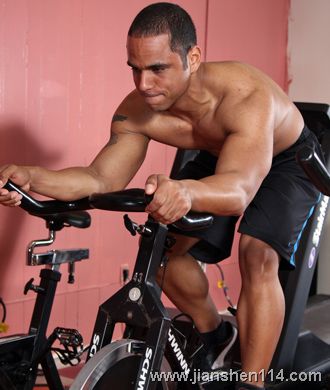
1. What is high blood pressure?
In the absence of antihypertensive drugs, systolic blood pressure ≥140mmHg at rest, and/or diastolic blood pressure ≥90mmHg can be diagnosed as hypertension. However, only one person with elevated hypertension can not be diagnosed. It is necessary to measure blood pressure three times on different days to exceed the normal standard before the diagnosis can be confirmed.
2. Hazard of hypertension
Hypertension mainly causes damage to the heart, brain blood vessels, kidneys and fundus. Stroke, heart disease, and renal insufficiency are common complications of hypertension, with high disability, high mortality, and serious harm.

3. Symptoms of high blood pressure
Early hypertensive often has no symptoms or mild symptoms, often quietly causing an emergency, and is recognized as a "silent killer." The more common symptoms are headache, dizziness; hard, fatigue, irritability, and inattention.
4. Who is prone to high blood pressure?
Being overweight or obese, eating too much salt, drinking too much alcohol, smoking, and lack of exercise are the main risk factors for elevated blood pressure. People with one or more of the above conditions are more likely to suffer from hypertension.
5. What tests do you need to do for patients with hypertension?
Blood lipids, blood sugar, urine routine and renal function tests should be performed to comprehensively assess and guide treatment. In particular, it is necessary to understand whether high blood pressure damages the heart, brain blood vessels and kidneys.
6. Hypertension medication
Under the guidance of doctors, reasonable choice, long-term adherence, and regular use of antihypertensive drugs are the basic guarantee for sustained and effective antihypertensive.

7. Hypertension, taking medicine, bogey
(1) Avoid using drugs indiscriminately, favoring advertisements, and listening to drugs.
(2) Avoid excessive pressure on the blood pressure.
(3) Avoid blood pressure medication.
(4) Avoid taking the antihypertensive drug at will.
(5) Avoid taking no symptoms without taking it.
8. Self-conditioning of hypertensive patients
(1) Adhere to medication: adhere to the doctor's guidance and take the medicine, do not stop the drug at will.
(2) Comfortable mood: To be "satisfied, frustrated," to minimize mood swings.
(3) Light diet: low-salt and low-fat diet, daily sodium intake should be below 6 grams, and should not be eaten too much for each meal, eat more fresh vegetables and fruits. Smoking cessation is limited to alcohol and tea is light.
(4) Reasonable rest: do not stay up late at night, and guarantee a sleep time of about 7 hours a day. In addition, you can take a nap for lunch (half an hour to an hour).
(5) Get up slowly: Wake up in the morning, don't rush to get up, first move your limbs and head and neck on the bed to adapt to the change of position when you get up, to avoid dizziness. Then slowly sit up, move a few times on the upper limbs, and then get out of bed.
(6) Moderate exercise: It is not advisable to do strenuous exercise. It is advisable to choose activities such as walking and Tai Chi.
(7) Control weight and prevent obesity.
(8) It is important to measure blood pressure frequently. The most effective way to detect high blood pressure early is to measure blood pressure regularly. Regular measurement of blood pressure is the only reliable way for patients with hypertension to understand blood pressure levels. Frequent measurement of blood pressure is an effective measure to control high blood pressure and prevent cardiovascular and cerebrovascular diseases.

9. How to prevent high blood pressure?
(1) Reasonable diet, appropriate restriction of sodium salt and fat intake, eat more fresh vegetables and fruits.
(2) Smoking cessation and alcohol restriction.
(3) Adhere to the right amount of physical exercise.
(4) Maintain normal weight, and those who are overweight and obese should lose weight.
(5) Reduce mental stress and maintain a psychological balance.
(6) Adults should measure blood pressure at least once a year.
Â
Â
Jumbo Toilet Papers,Bamboo Toilet Paper,Toilet Tissue Jumbo Roll,Custom Print Toilet Paper
Baoda Paper Enterprise Co., Ltd. , https://www.baodatissue.com